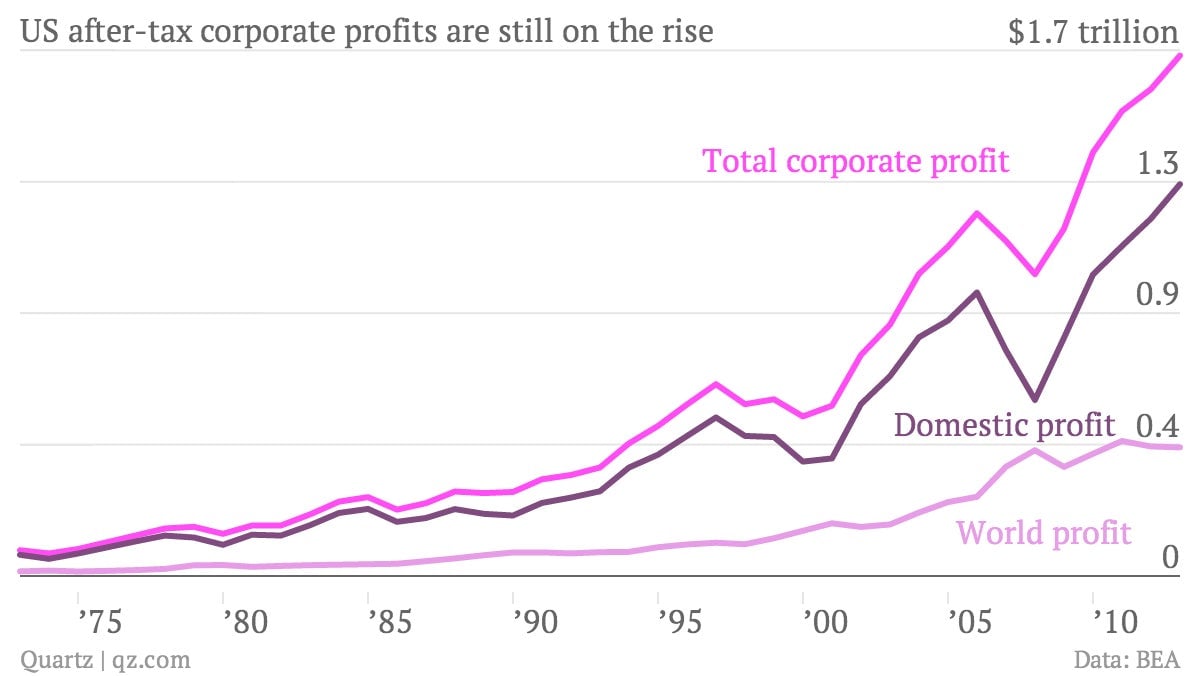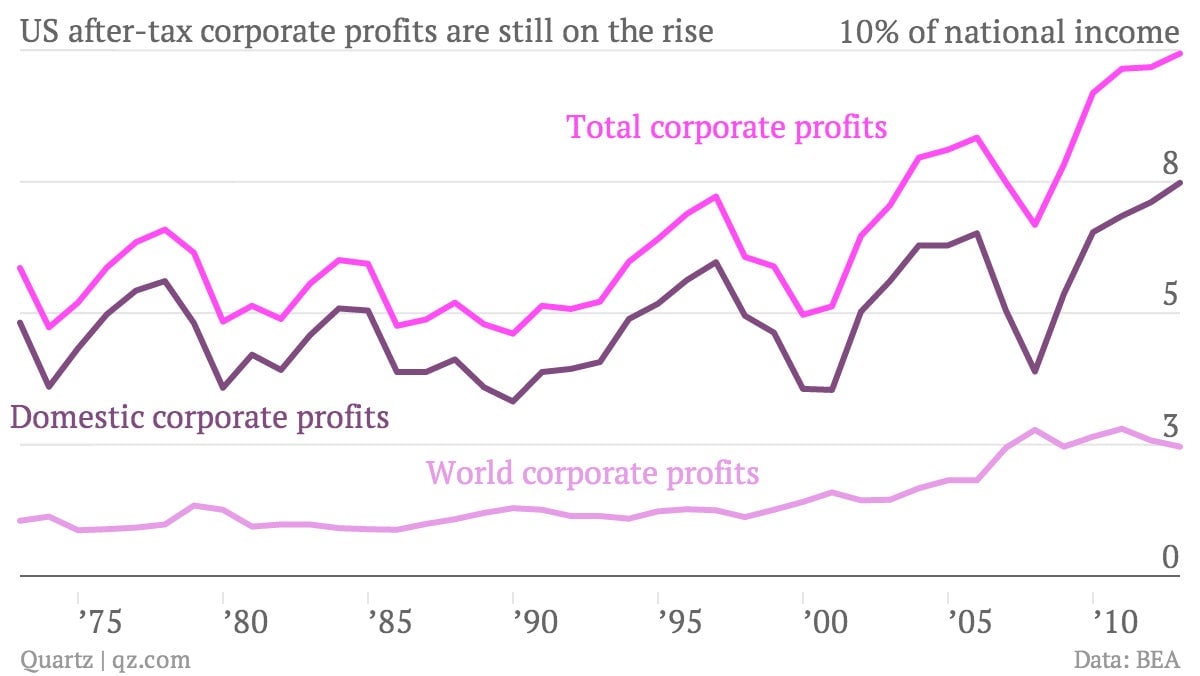What another record year of corporate profits means for the US economy
Last year was another record year for US corporations. New figures released today show they pulled in a record $1.68 trillion in after-tax profit:

Last year was another record year for US corporations. New figures released today show they pulled in a record $1.68 trillion in after-tax profit:

Or perhaps you’d prefer that result expressed as a share of total US national income? Yep—still a record.

This isn’t a surprise: Since the recession, weak labor markets and cost-cutting have allowed companies to maximize US revenues; the growing impact of global sales (and the ability to indefinitely defer taxes on their profits there) have grown the bottom line; and low interest rates have made borrowing cheap for companies issuing debt. What can we take away from this?
There’s not a stock-market bubble—at the moment.
Sure, valuations are high, but that’s in part because profits are so high. This situation won’t continue forever, but if corporate profits are higher than they have ever been, it makes sense that the stock market is approaching record value, too. See these charts for more.
Corporate tax reform isn’t coming anytime soon.
For US politicians, tax reform would take the form of closing tax loopholes to lower overall rates. But US companies are enjoying some of the lowest effective tax rates around thanks to those breaks, and corporations are in no hurry to change that situation.
Labor is still losing.
We bummed you out on Labor Day with the news that US workers’ share of national income was the lowest since World War II, and this is more confirmation that companies don’t need big waves of hiring to stay in the black. While the labor market has been tightening gradually, there’s still no question that workers are at a disadvantage.